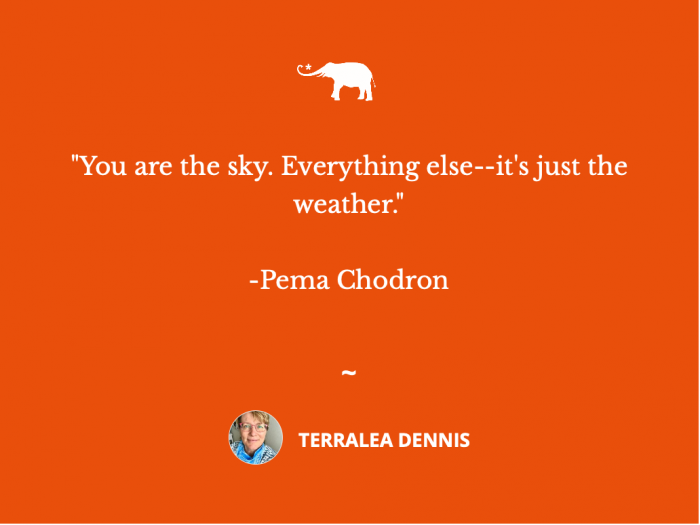Fun facts for the day: Barracudas swim up to 36 mph, weigh up to 100 pounds, have incredible vision, and use their face full of sharp chompers to consume hundreds, nay, thousands of unsuspecting, sparkly fishies. These fierce predators hunt along the coastline in tropical waters, where chubby, glittery, vampire-skinned tourists swim lazily along.
Did I just put a huge brake on your Polynesian vacay fantasizing?
Not to worry, my friend, your literal chances of being eaten by a barracuda are…wait for it…none. Yes, I know, you were scarred by Nemo’s mom being eaten by a barracuda, but according to the worldwide interwebs, Nemo’s dad just quickly shifted genders and became DadMom. So, no worries.
Yes, I know, barracudas have those terrifying sets of endless teeth.
Yes, they’ve evolved over 500 million years.
Yes, Nancy Wilson of the rock band Heart compared ruthless record producers to this ugly fish. They’re just that predatory!
Truly, dear one, if your nervous system is getting kicked up right now what with all the countless scary things out there in the world, including—insert drumbeat from mega rock hit “Barracuda” here—predatory fish, I’m here to remind you: it’s just bathwater.
Guess what else is badass…minus the endless teeth? The human brain and nervous system.
Guess what can crunch to oblivion any sparkly hope, blossoming resilience, and fragile self-compassion? Also, your nervous system.
Let me explain:
Our automatic survival brain, the ancient animal brain, is designed for survival—that’s its sole function. It was not designed for the constant tech input and stress of living with seven billion other humans. So, it’s on high alert most of the time, causing overwhelm, triggering depression, anxiety, sleeplessness, constant irritation, feelings of “stuck-ness,” and a host of chronic health conditions.
What I didn’t realize is that we are reacting from our survival autonomic response most of the time. This drives our decisions by keeping us in patterned thinking. This also causes us to second guess our creative impulses, make excuses, or become judgmental and irritated…or buy that cute outfit in three different colors.
To this ancient part of our nervous system, patterns are survival. It’s better to know the demon in the room than to wonder about the possibilities outside. This drives our needs and addictive patterns because even though we know that clinging to pleasure and avoiding pain isn’t sustainable, our nervous system clings to patterns. That is all it knows. It is a blind system.
Disclaimer: I am not a brain doctor, but I have played one on television…just kidding. I do, however, carry a pretty destructive pattern of beliefs, addictions, and mental suffering stretching way back—about a half a century. Also, I’ve made a pretty recent vow to fall deeply, madly in love with my blind barracuda mind.
How about you?
I wish you and I were in a coffee shop right now so I could send you a little wave of positive juju—a little compassionate care from my eyes to yours, feeling the interconnection of all our broken, bent, and bothered hearts. May these words find their way to softly blanket your gentle soul.
Did you just breathe a little deeper? I did.
Back to the blind barracuda. Mine’s name is Bernice, by the way.
The Buddha had a name for his predator mind too—he called this demon Mara, the Destroyer. Buddha wrote, to our dismay, that Mara was ever-present—particularly the self-doubt demon face, to the end of his illustrious life. Mara is the personification of everything that prevents enlightenment—all the causes of suffering. The root of this Sanskrit word means to cause death, wielding the weapons of lust, doubt, rage, and fear.
As if one demon dude wasn’t bad enough, Mara had five barracuda-ish daughters with names like Aversion, Avarice, Delusion, Pride/Ego, and Fear. What a lovely bunch.
Mara might have joined the Hindu narratives centuries ago, but still sticks around. At EuroDisney, on the Indiana Jones ride, Mara attempts to kill all those that look into his eyes. To look into his eyes is to believe his lying words and be destroyed. But what happens when we engage and make the Mara look at us?
We say, as Buddha did, “I see you, Mara. Swim away.”
I wonder what a blind barracuda would be like in its short life? Reactive, maybe? Angry? Enraged? Blaming everyone and everything including itself?
Leaping to conclusions? Assuming the worst? Catastrophizing every turn? Grasping at addictive paths on an endless hunger for soothing?
And, metaphorically speaking, probably chomping on anything in its path, such as loved ones, partners, parents, pets, children, school teachers, customer service reps, the guy that swerved into our lane, or innocent, chubby tourists.
What sounds like logic in our own heads is really dressed up as the fight-or-flight response. Pair that with our memories and our stuffed down emotional sh*t, and we have what drives our behavior and thinking 90% of our waking hours….or maybe 99 percent.
Then, we feel stressed out. This results in a desire to lay on the couch and binge-watch anything. Or maybe joke about breakfast wine. Or heart or comment on a meme, pretending that might heal something. Or complaining about dog sh*t on that neighborhood app…again.
We all have tendencies toward addictive patterns—even healthy things, right? Anything I attach the word “need” to is probably my Mara/blind barracuda/ Bernice mind.
So, I see you.
True rest from all this chaotic and destructive energy comes from breathing with focused intention and sleeping deeply. It also comes from walking in nature, eating mindfully, snuggling with loved ones, and moving our bodies—such as doing yoga, qigong, swimming, dancing, or running. It all sounds simple, but it takes effort.
I learned, to my dismay, that just buying an app doesn’t mean I am really healing.
Change is hard. Can I give myself a little heart-kindness around that? Can you? What I truly require is not only to identify my patterns of suffering, but to move forward with purpose, intention, and gratitude. You know, the stuff that isn’t in an app or on a screen.
So, I practice. Breath by breath. Step by step. Receiving support as I go. And if all that lovely healthy stuff gets interrupted by another swarm of blind barracudas— hello, Monday—then what?
Do as the Buddha did. He didn’t say it was easy, he said we begin again, and we begin again, and again.
So, there is hope. Buddha, me, you—we can all be experts on facing our destructive, blind patterns. We can all look with curiosity and compassion and say, “I see you, Mara.”
Turns out, identifying forces of destruction in our nervous system without calling up a narrative is powerful. It is the gate to compassion—the only gate.
So we take a breath and walk through that gate, taking the first step to love. Yes, I said it, we all need love—especially those with blind barracuda minds. When I first learned that these patterns aren’t me, but they’re ancient, automatic, blind response systems, I began to wonder about my own inner essence: my true self, beyond my patterns—the part that can say, with curiosity and calm, “I see you, Mara.”
With breathing and getting in touch with the body experience, we experience healing—we build resilience, focus, and calm, breath by breath.
No phone app needed—just the mind, resting on the breath, on the feelings in our limbs and in our hearts.
Then, we identify that what lies beneath is a desire we all share: to live, to thrive, to feel, to love—all this embodies healing, opens our eyes, peels away the teeth and scales, and exposes our true nature. This allows us to see that we are loveable—that we can also love the icky stuff. Then, we know: the barracuda is just a fish, and the terrifying sea is just bathwater that we are all swimming in together, making our way home.


 Share on bsky
Share on bsky






Read 1 comment and reply